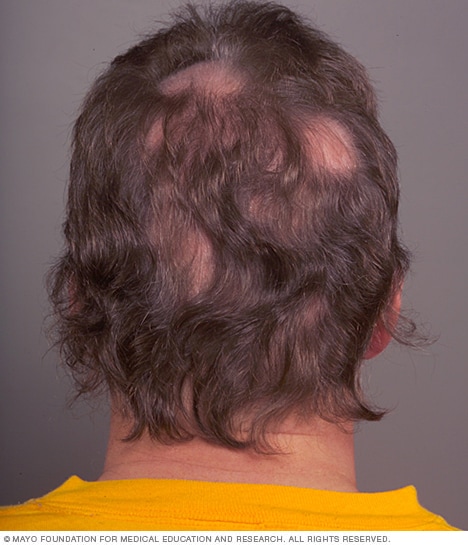Shop At Haya: Your Ultimate Shopping Guide
Discover the best shopping tips, trends, and deals for a smarter buying experience.
When Hair Goes AWOL: The Mystery of Disappearing Locks
Unravel the mystery behind disappearing locks! Discover surprising causes and solutions for sudden hair loss in this must-read blog post.
Understanding the Causes of Hair Loss: Common Triggers and Treatments
Hair loss, also known as alopecia, can be a distressing experience for many individuals. Understanding the causes of hair loss is crucial in addressing the issue effectively. Common triggers include genetic predisposition, hormonal changes, nutritional deficiencies, and stress. For instance, conditions like androgenetic alopecia, often referred to as male or female pattern baldness, is primarily influenced by hereditary factors. Additionally, hormonal imbalances, particularly those associated with conditions like thyroid dysfunction and polycystic ovary syndrome (PCOS), can significantly impact hair growth. Nutritional deficiencies, such as a lack of vitamins and minerals like iron, zinc, and biotin, may also exacerbate hair thinning.
Fortunately, various treatments are available to combat hair loss, depending on the underlying cause. Medications such as minoxidil and finasteride are commonly prescribed to stimulate hair regrowth in individuals experiencing androgenetic alopecia. Furthermore, lifestyle changes that prioritize a balanced diet and stress management can also promote healthier hair. In some cases, advanced treatments like laser therapy or hair transplantation may be considered for more severe cases. Understanding both the triggers of hair loss and the available treatment options is essential for effective management and restoring confidence in affected individuals.

The Science Behind Thinning Hair: What You Need to Know
Thinning hair is a common concern that affects millions of people worldwide, and understanding its underlying science is crucial for effective management. Hair loss can be attributed to a variety of factors, including genetics, hormonal changes, nutritional deficiencies, and environmental influences. The most prevalent form of hair loss, known as androgenetic alopecia, is linked to hereditary factors and affects both men and women. As hair follicles shrink over time, the affected hair strands become thinner and shorter, leading to visible thinning on the scalp.
Additionally, the health of your hair is closely linked to your overall well-being. Stress, poor diet, and insufficient sleep can disrupt the natural growth cycle of hair, exacerbating thinning. Essential vitamins and minerals, such as biotin, zinc, and vitamin D, play critical roles in maintaining hair health. To combat thinning hair, consider incorporating a balanced diet rich in these nutrients, along with lifestyle changes that promote stress reduction and improved hair care practices. Understanding these factors can empower individuals to take proactive steps towards healthier hair.
Is Stress Making Your Hair Disappear? Exploring the Connection
Stress is often regarded as a silent killer, impacting our overall health in ways we may not fully realize. Numerous studies have shown a definitive connection between high levels of stress and various health issues, including hair loss. Conditions such as telogen effluvium, which is a temporary form of hair loss, can be triggered by significant stress events. When the body experiences stress, it can push a large number of hair follicles into a resting phase, leading to noticeable thinning or shedding of hair within a few months.
In addition to telogen effluvium, chronic stress can also exacerbate autoimmune conditions such as alopecia areata, where the immune system mistakenly targets hair follicles, leading to hair loss. It's essential to manage stress through relaxation techniques like meditation, yoga, or regular physical activity. By prioritizing mental health, you not only improve your overall well-being but might also protect your hair. If hair loss becomes a significant concern, consulting a healthcare professional is advisable to explore both stress management and potential treatments.